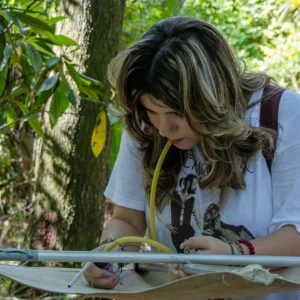YOUNG SCHOLARS PROGRAM
ABOUT THE FSCA YOUNG
SCHOLARS PROGRAM
The Florida State Collection of Arthropods (FSCA) is the largest arthropod reference and research collection in the Southeastern United States. The FSCA is over 100 years old with more than 12.5 million curated insect and related arthropod specimens and is one of the five largest museums in North and South America. We have a broad collection, including representatives across the major groups of insects with specific strengths in beetles, dragonflies, spiders, grasshoppers and true bugs.
The FSCA Young Scholars Program takes students through all the major steps involved in building and maintaining a natural history museum for research and education. Students collect insect specimens, process specimens following the standards set by the scientific community and contribute to and curate parts of the FSCA. Students also learn the value of specimen data, sharing their data with online natural history collection aggregators, such as the Global Biodiversity Information Facility (GBIF) to see how the larger community uses these data. Students work with Ph.D.-level entomologists and are provided with all of the equipment and literature needed for the program.
Activities include:
- Fieldwork – students start by sampling a few insects in the surrounding area, exposure to basic trapping, and short-term preservation.
- Sample sorting – students retrieve samples, rough sort to major groups and decide which representatives make it to the next stage.
- Specimen preparation – students learn various curatorial techniques, including pinning, pointing, vials, envelopes, etc.
- Labels – students learn the essential parts of a research-grade specimen locality label and generate those labels for the previously prepared specimens.
- Identification – students practice identifying insects to the lowest possible level with available diagnostic tools.
- Databasing – identified specimens are given GUID barcodes, and the data is entered into a standard format.
- Publishing – Those data are uploaded to online data aggregators (like GBIF) and made available to the larger scientific community.
For more information, email FSCA@FDACS.gov.
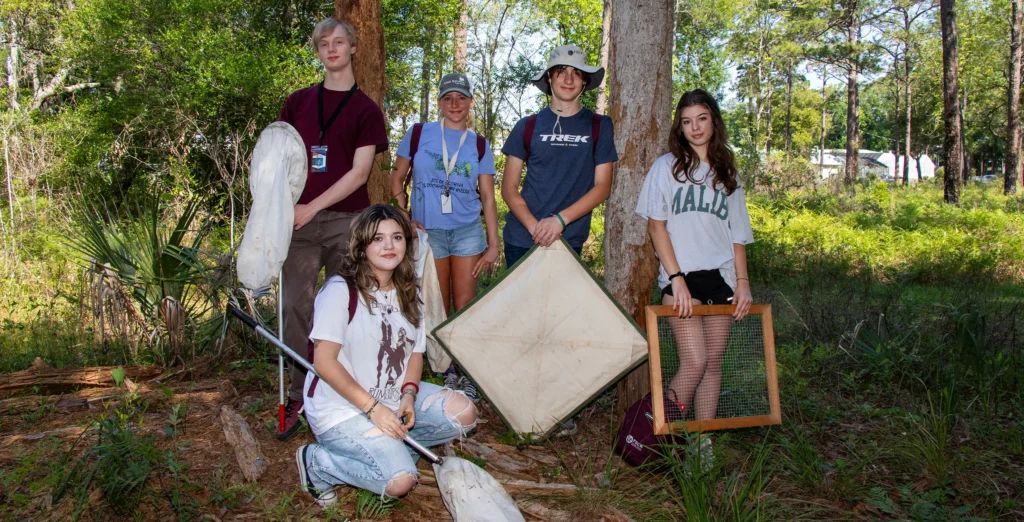
Meet The FSCA Young Scholars
Evan
In high school, Evan participated in the International Baccalaureate program and even developed a research project studying the impact of introduced spider species on Florida’s native spider populations. He is extremely interested in spiders, even working as a volunteer docent at the “Spiders Alive!” traveling exhibit at the Florida Museum of Natural History. While participating in the FSCA Young Scholars program, he worked with Dr. G.B. Edwards, the world authority on jumping spiders. Evan recently graduated and will attend Florida State University in the Fall.
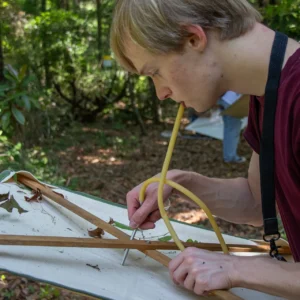
Kennon
Kennon is heavily involved in the National FFA Association and is in the Academy of Agriscience at his school. He is interested in insects’ natural history, particularly Hymenoptera and Odonata. Kennon is a born naturalist, highly observant of organisms in the field, and a prolific insect collector. He spends most of his free time exploring the diverse ecosystems of north Florida studying plants and wildlife.
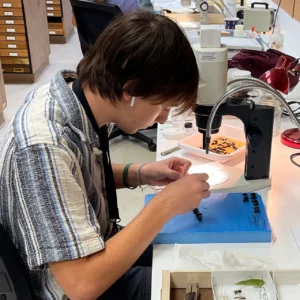
Ellison
Ellison is in the International Baccalaureate program at her school, where she is conducting an independent research project on the Asian citrus psyllid (ACP), a vector of citrus greening disease. She is specifically studying an ACP biocontrol agent, Tamarixia radiata, and its effect on ACP populations and the subsequent impact on the citrus industry. Ellison is interested in molecular diagnostics and other biotechnological tools for use in the biological sciences. She was also greatly influenced by her experiences in middle school at Lepidoptera Camp, organized by the Florida Museum of Natural History.
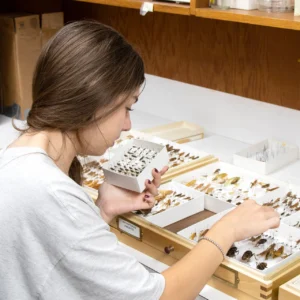
Royal
Royal is in the International Baccalaureate program at her school. She is conducting multiple independent research projects—one on the effects of light pollution on insects and a second on the impact Entomophagy can have on addressing world hunger. She has experience as a beekeeper and has spent time collecting at Archbold Biological Station, a famous outpost for entomological research. Royal participated in the University of Florida’s Bug Camp as a middle school student, which helped focus her interest.
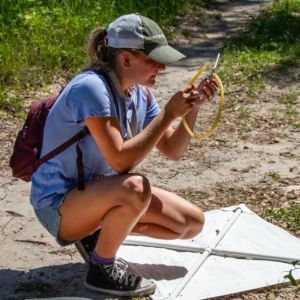
Kailey
Kailey is in the National FFA Association and a member of the Academy of Veterinary Assisting at her school. She has an interest in Coleoptera and a true talent for curating insects, taking care to preserve them precisely and artistically. Kailey enjoys using her creativity to make insect jewelry using the perfectly preserved insects she collects. Through their summer camps, she has worked extensively with the McGuire Center for Lepidoptera and Biodiversity.
